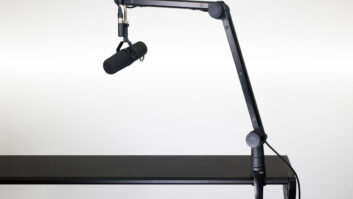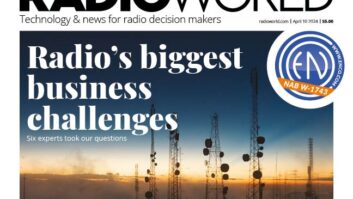Open Mic: Barry Thomas
Nov 1, 2006 12:00 PM
The larger groups are regularly in the spotlight with news of their stations implementing HD Radio, but smaller groups are just as much a part of the transition. Lincoln Financial Media (LFM) owns 18 radio stations, and it is in the process of installing the technology across the group. We talked with Barry Thomas, vice president of engineering for Lincoln Financial Media, to hear about this group’s philosophy on implementing HD Radio.
Radio: How does LFM determine which stations will install HD Radio equipment?

BT: The HD Radio roll-out is incorporated into our existing transmitter replacement plans for each station. This process is slated to be completed over the next few years, but more than one-third of our stations will be on the air with HD Radio by the end of 2006. The station roll-out is also on schedule with our agreement with Ibiquity to implement the technology at our stations.
Radio: What is the current station roll-out plan?
BT: In 2005: KKFM, Denver, and WLNK-FM, Charlotte, went on the air. In 2006, WSTR-FM, Atlanta, WLYF-FM, Miami, WMJX-FM, Miami, KCKK-AM, Denver, and KYGO-FM, Denver, went on the air. KSON-FM, San Diego is under construction. In 2007 we’ll add more stations in Denver and possibly San Diego. The HD Radio roll-out should be complete by the end of 2008.
Radio: How do you categorize LFM’s plan to implement HD Radio?
BT: LFM is not an early adopter, but we also do not want to be behind the curve. Call us a middle adopter.
We’re not exactly sure how we’re going to use the technology, but we know that there is potential. We are experimenting with ways to do it. We believe that the killer ap is multicast. We’re exploring what we’re going to do with the added channels in the end.
Radio: So multicast is important to LFM?
BT: Yes. We expect to run HD-2 on all our HD Radio FM stations.
Radio: What are your stations doing with the multicast capability?
BT: Consider that muticast today is like FM radio was in the 70s: the record changer in the back of the studio. We have a variety of formats on our HD-2 channels, and in time we’ll focus on what will work best on these channels. In the meantime we have the platform to do it.











